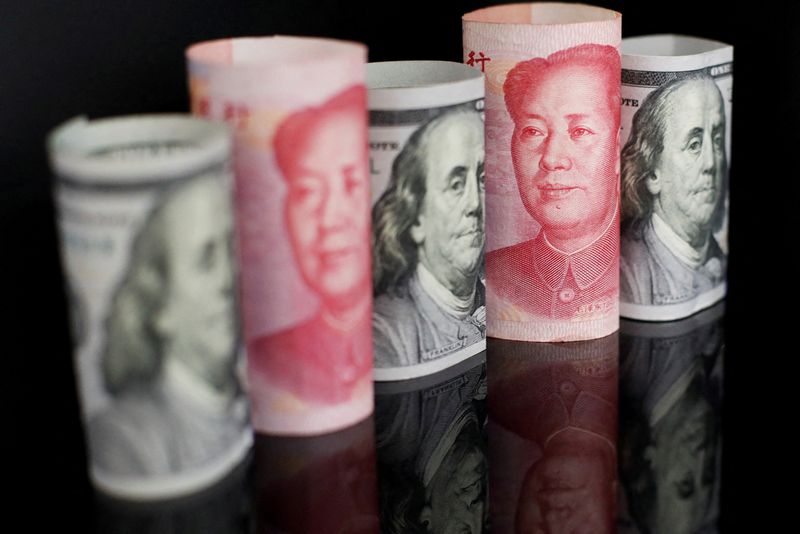By Jaspreet Kalra and Ankur Banerjee
SINGAPORE/MUMBAI (Reuters) - Asia's central banks have spent this year defending their currencies against a strong U.S. dollar, paring foreign exchange reserves to multi-month lows in the process, yet have struggled to soothe market nerves or contain capital outflows.
Emerging Asia's currencies have been highly volatile all year, hemmed between China's defence of its yuan and a surging dollar backed by a progressively more hawkish Federal Reserve.
Analysts at J.P. Morgan estimated Asian central banks, excluding China, have sold more than $30 billion of reserves in the past two months to stabilise currencies.
But that intervention has done little to calm investors worried about diminishing returns in emerging markets as dollar yields rise and currencies weaken.
Official data showed a net outflow of $2.7 billion from Asian local currency bonds in August as bond markets in Malaysia, Indonesia, South Korea, India and Thailand clocked their biggest net sales since October 2022.
Foreign exchange reserves have dwindled across the region. South Korea's reserves stood at $414.12 billion at September-end - the smallest amount since October 2022, while Indonesia's reserves fell to $134.9 billion last month, the lowest since November.
Not all of the change can be attributed to intervention, though, as the dollar's rise has also eroded the value of other currencies held by central banks.
"Literally everybody in Asia is now participating in the market much more," said Brad Bechtel, global head of foreign exchange at Jefferies. "The dollar would be far higher if all these Asian central banks weren't participating so aggressively."
Indonesia's rupiah was, until early this month, one of few Asian currencies to be up against the dollar but is now down about 1% for the year. The South Korean won is down more than 5%, while the Thai baht has slipped nearly 5%.
The Reserve Bank of India (RBI), Bank Indonesia and Bank of Thailand have spoken out against speculative foreign exchange trades, and over the last month stepped into the market to support their depreciating currencies.
India's foreign exchange reserves stood at $584.74 billion as of Oct. 6, the lowest in more than five months.
Speaking on the sidelines of the International Monetary Fund and World Bank annual meeting in Marrakech, RBI Governor Shaktikanta Das last week said, "central banks in emerging markets were required to intervene in the currency market from time to time to prevent excessive volatility".
While reserves have fallen, they are above levels seen in October last year and still leave central banks with ample ammunition.
But gyrating currencies and the challenge of fighting an unstoppable and forceful dollar rally have also hamstrung any hope of monetary policy easing in most of Asia this year.

Aninda Mitra, head of Asia macro and investment strategy at BNY Mellon (NYSE:BK) Investment Management, said it was not a surprise that rate cuts in Asia are off the radar this year and seem to be getting pushed into 2024.
"The reality is FX intervention will tighten liquidity... That completely works against what you are trying to accomplish via a rate cut. So why even bother?"